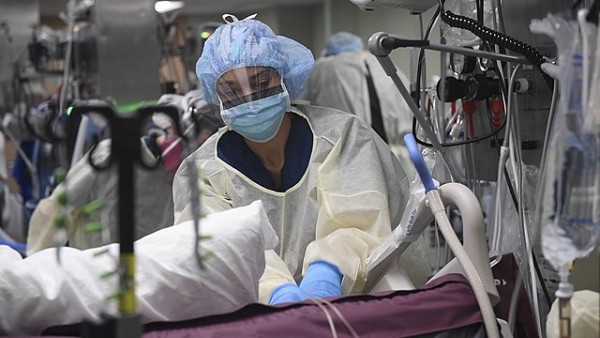Research Evaluates the Role of Hyperglycemia in the Severity of COVID-19

The newly formed teams for hyperglycemia management headed off to look for a way to monitor diabetes of patients sans the use of PPEs or personal protective equipment for room visits all the time.
As the pandemic continues to hit the United States and the rest of the world, researchers have dug deeper into the manner the virus is causing devastation in the body, specifically for individuals with pre-existing chronic disease.
Following initial observations of 200 patients with COVID-19 and experiencing severe hyperglycemia, a team from Michigan Medicine has shed light on a new paper by the American Diabetes Association on why high blood sugar levels may activate worse results individuals infected with the virus.
Scientists have devised a tool for blood sugar management that may probably lessen the risk of secondary contagions, kidney problems, and stays in intensive care, among diabetes, obesity, and pre-diabetes patients who contract COVID-19.
Based on initial observations of the team's patients, Roma Gianchandani, MD, the first author, and internal medicine professor said, those who have one of those as mentioned earlier pre-existing medical conditions, are at high risk for "making the virus-induced respiratory dysfunction much worse," possibly leading to death.
ALSO READ: Experts Look Into Vulnerability of Embryos Against COVID-19
Complications
Rodica Pop-Busui MD, Ph.D., the study's senior author, and diabetes professor, said she suspects it is the "low grade, inflammatory nature of diabetes, as well as hyperglycemia" that promote the inflammatory surge of the virus, leading to resistance to insulin and severe hyperglycemia.
Pop-Bosui also said, "When the body turns out to be this inflamed," it activates an abnormal immune response that, rather than simply attacking the virus, impacts the rest of the healthy tissues and cells of the body, resulting in a prompt drop in health.
Such patients, specifically, are at a heightened risk for mechanical ventilation, replacement of kidney because of kidney failure, and necessitating meditations like steroids and "vasopressors" to prevent the occurrence of dangerously low blood pressures from fighting "acute respiratory distress syndrome."
According to Michigan Medicine's internal medicine professor, Roma Gianchandani, all of such complications are making the management of blood sugar more difficult.
DON'T MISS THIS: New Study Suggests Compulsory BCG Vaccination May Help Slow Spread of COVID-19
Procedure Implemented
The newly formed teams for hyperglycemia management headed off to look for a way to monitor diabetes of patients sans the use of PPEs or personal protective equipment for room visits all the time.
Additionally, it was essential to lower too, the exposure of health workers to the infection, as much as possible.
And, even though usually precise, the continuous monitoring of glucose would not be as helpful as the low blood pressure of the patient, and taking blood pressure drugs could misleadingly raise glucose levels.
This new procedure called for the delivery of insulin ever six hours, and simultaneously a nurse would come in to check on the patient.
Essentially, according to reports, those on ventilators or being given high vitamin C doses "would get their arterial or venous blood sugar levels checked," substituting the necessity to have the blood sugar of the team checked.
For individuals recorded with the highest levels of blood sugar and severe hyperglycemia, insulin infusions were said to be a choice for them until their levels dropped between the normal range.
The outcomes of these initiatives helped successfully lower the levels of blood sugar minus the rise in contact with nurses, not to mention the overall burden on the use of PPEs and teams of primary care.
IN CASE YOU MISSED THIS: Antibodies May Not be the Key to Combating COVID-19
Check out more news and information on COVID-19 on MD News Daily.
Aug 12, 2020 06:52 AM EDT





